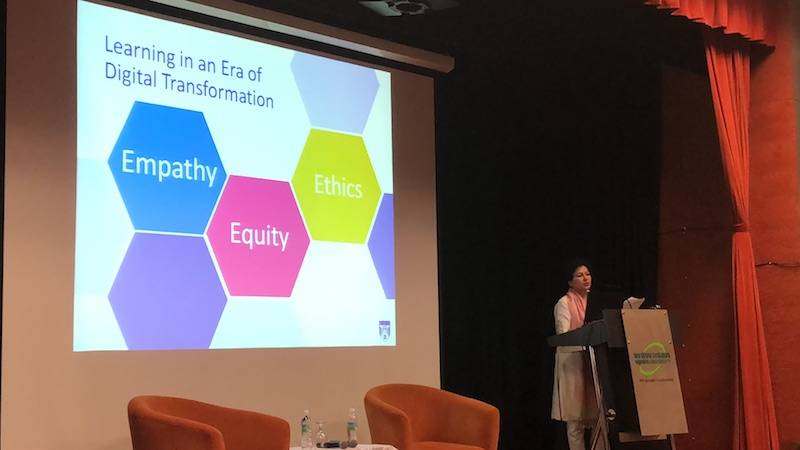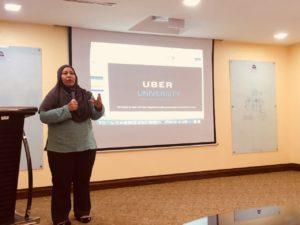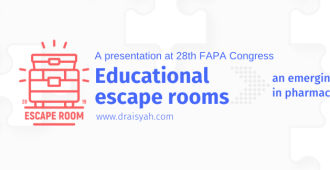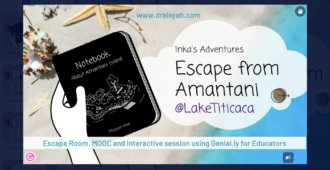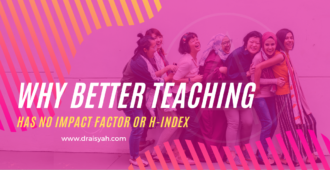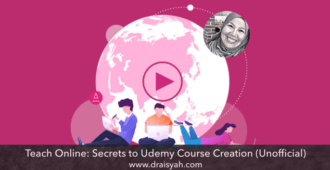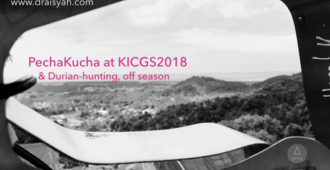Learning in the Era of Digital Transformations
A day before the historic Malaysia’s 14th General Election, I attended an excellent talk by Prof. Asha Kanwar at Wawasan Open University in Penang. Prof. Kanwar is President and CEO of Commonwealth of Learning (CoL). It’s about how people approach learning in the digital era. ‘People’ here could mean anyone, but her talk focused more in particular the millennials (digital natives) who are perhaps in the 30s and Gen-Z (students and those entering the job market).
Three takeaways from Prof. Kanwar’s Public Talk:
-
“Countries have skills shortages, not degree shortages.” Andreas Schleicher
What are the skills in demand? Communication, critical thinking and teamwork are amongst three sought after on-the-job skills according to the Global Skills Gap and Weforum. It is not surprising since no man is an island, when it comes to work. Institutions, companies and corporations need people who can think, not simply carry out orders/instructions. Those who work and communicate well with their team mates and bosses in delivering great work. They also need to have good communication skills with suppliers and customers.
But in the age of social media, some may not be well-equipped with these skills. The younger generations seem to communicate differently than the older ones. They seem to prefer technology to communicate, quick with short messaging or visuals. Less and less of face-to-face interactions and taking the time to understanding nuances in communication and deep listening. Educators could start thinking how to introduce or embed the 21st century skills in the lessons or lectures. Out of the skills above, my attempts with pharmacy undergraduates–teamwork seems the most challenging skill to inculcate–both for students in a large classroom and the instructor, managing such number. Still learning… and from experiences working in a team, one could take or slowly rise to the role of leadership.
And I would like to mention the role of a staff/team mate to a leadership position. Many play leadership roles without any titles–how can one tell? When there are followers (probably not fans…). Do read The Servant to find out more on the role of a leader. It changes my perspectives on being a leader. Humility ranks highest in this model of leadership. [Martin Soutschek, if you’re reading this… thanks for sharing!=)]
-
“The focus now is competencies, rather than certificates or degrees.”
In the recent Open Education Global Conference 2018 in Delft that I attended, Vincent Zimmer of Kiron Open Higher Education, delivered a keynote on providing digital solutions for growing number of refugees who want to gain access into higher education institutions. Strategic partnerships with institutions are forged where refugees can learn any where in the world via MOOCs for 2 years and spend another 2 years at a partner institution.
Apart from the ‘Uber University’ model that I presented in a MyCeL (Malaysia e-Learning Centre) Oct 2017 workshop in USIM, I believe the Kiron solution is another model or learning path that a university can consider. Particularly in reducing the widening access and providing better equity for rural or marginalised communities in the world.
Implications to Malaysia MOOCs? It’s been close to 4 years now since the first four pioneering courses went online. I’ve seen good MOOCs out there by Malaysian educators. Big-screen persona. Professionally-done. Blood, sweat and tears went into the design and development of theses online courses. But what’s the impact–to the society or the world? How can an unemployed person, or working people or those with a diploma can learn online to gain access into higher education?
To this end, and to attract more international students to Malaysian institutions, we must start lowering or removing ‘obstacles’ getting into Malaysian higher institutions. One immediate and possible solution is by creating and opening up pathways to our 300-strong Malaysia MOOCs to wider communities, not just for on-campus students. There have been many talks, brainstorming sessions, workshops etc on this matter. I’ve involved in some; yet concrete solutions and implementation remain to be seen. What have we got to lose? I wonder. In this digital world, institutions may gain more in other ways, unimaginable. Worth exploring, worth taking risks. Think the long run.
In the keynote address, Vincent mentioned that Google hires people based on competencies (what can you do) than a paper degree (what an institution says you’ve learned). This was echoed by Prof. Kanwar in her talk, who also mentioned about re-skilling and micro-credentialing as emerging trends in digital transformations. A Malaysia’s first, USM’s Microcredential Online Learning Portal is a future-ready micro-credential based initiative spearheaded by Prof. Abd Karim Alias. The learning portal offers micro-learning courses (30 mins to 2 hours) focusing on key skills and competencies for personal and professional development. Currently, the short courses are geared towards educators and teachers, for example Ebook Publishing (free!), Teknologi Literasi untuk kanak-kanak and Gamify Your Class with Quizizz. More courses will be offered and are being developed with strategic partners–with various educators in public universities, ministries, industries and professional bodies.
-
What would the learners be in 2035?
Prof. Kanwar predicted several technological advances that learners would use in 2035. One of her predictions gave me goose-bumps, that is language translation implants. Direct translation work (by human) is already happening in several sectors, e.g. in meetings with international participants (WHO, UNESCO). Some mobile apps (e.g. Google Translate) have managed to lower or remove the language barriers in many situations e.g. reading menus in a Greek restaurant or hospitals (English-Mandarin translation). But in some instances create more havoc, when incorrect meaning or uses are translated.
That said, if one can listen to the Inuits speaking and understanding them real-time in English with the help of a digital translator/AI implanted in your ears… that would take us to another level! Perhaps fewer ‘Lost-in-Translation’ moments;-) And I can’t wait for the day when I could ‘teleport’ myself to Machu Picchu or Iceland anytime and from any location.

Lastly, when Prof. Kanwar was asked on whether would tertiary education keep up with the fast-paced digital technology, she remained downbeat (quoting her in the FB post below):
and ended her talk with three points–Empathy, Equity and Ethics–for learners, practitioners and policymakers in the digital age. In this age of uncertainties.
To learn more, watch parts of her talk below:
